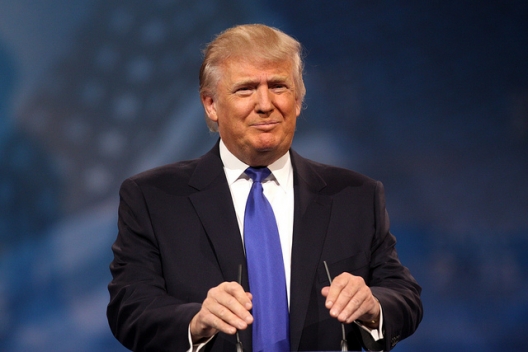 The President-elect should adopt the following priorities as part of his agenda as the de facto leader of the NATO Alliance:
The President-elect should adopt the following priorities as part of his agenda as the de facto leader of the NATO Alliance:
1. Reaffirm the Transatlantic Bargain: In his first major national security address as a candidate for the U.S. presidency last April, Trump promised to convene a NATO summit soon after taking office. He should execute that pledge with the aim of reaffirming U.S. commitment to the defense of Europe and European commitment and readiness to stand with Washington in addressing security challenges beyond the North Atlantic region, be it the Middle East, Asia, or Africa.
2. Ensure the Credibility of NATO’s New Posture in Central Europe: The Trump administration should work to ensure that NATO’s Enhanced Forward Presence – plans now being executed to place four battalions, including a U.S. battalion, one each in the Baltic states and Poland – is executed expeditiously and with the equipment and support necessary to provide a credible deterrent against Russian aggression.
He should also continue the U.S. European Reassurance Initiative (ERI) that will deploy an armored brigade combat team and an army aviation battalion to Central Europe and preposition an armored brigade equipment set in Europe….
3. Accelerate NATO Decision-Making: “[T]he Alliance needs to delegate more authority to NATO commanders so that they can better ensure the effectiveness of its Enhanced Forward Presence, to respond speedily to Russian provocations – if not to preempt them, and to test, refine, and demonstrate Alliance contingency plans and capabilities….
4. Develop A Transatlantic Russia Policy: A NATO summit provides a good opportunity to promulgate or at least launch the development of a more effective transatlantic strategy regarding Russia. To date, the U.S. and EU sanctions against Russia remain weak….
5. Reanimate the Vision of a Europe Whole, Free, and Secure: The new administration should signal that it seeks to establish roadmaps that will facilitate Georgia’s and Ukraine’s transatlantic ambitions, including NATO membership – even these are longer-term ambitions. It should continue to welcome the prospect of Swedish and Finnish membership….
6. Accelerate the Refinancing of European Defense Capabilities: NATO’s European allies have reversed the decades-long decline of their defense budgets. They are spending $3 billion more on defense than the previous year. Now that the turn has been made, that uptick in spending should be accelerated….
7. Update NATO’s Nuclear Doctrine and Posture: The Alliance’s nuclear doctrine and force posture no longer provides the deterrent capacity necessary to confidently influence Moscow…. There need to be other options available to the Alliance. NATO needs to initiate a thorough review of its nuclear strategy and capabilities….
Ian Brzezinski was Deputy Assistant Secretary of Defense for Europe and NATO Policy from 2001-2005. He currently leads the Brzezinski Group, LLC. and is a senior fellow at the Atlantic Council’s Brent Scowcroft Center on International Security.
Image: Donald Trump, March 15, 2013 (photo: Gage Skidmore
